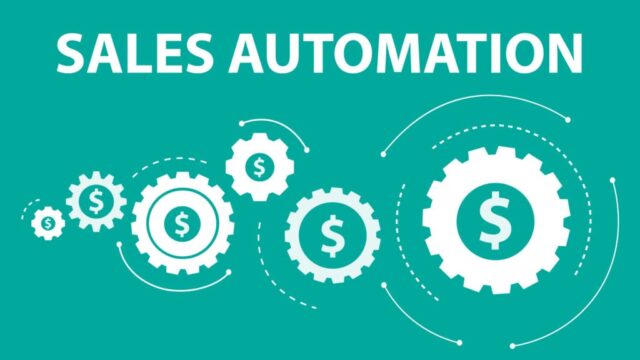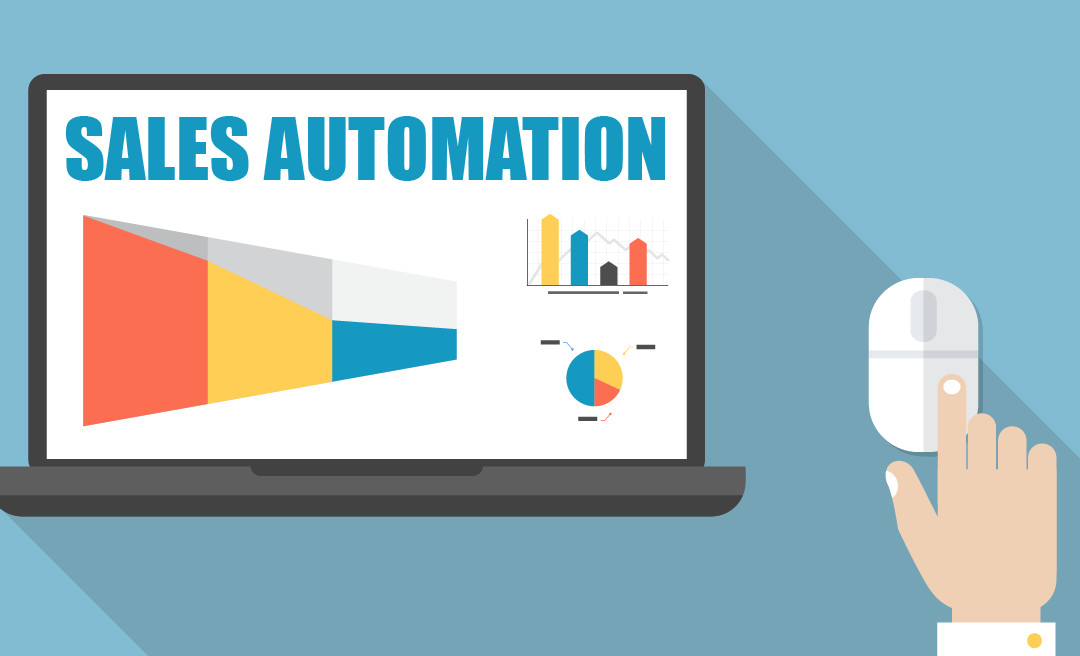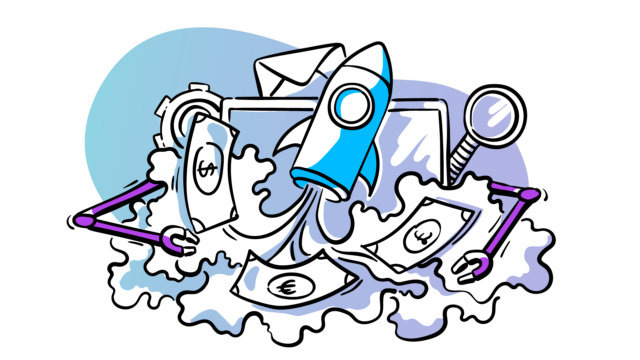
The business world is witnessing a transformative shift in how sales operations are conducted, largely driven by the rapid advancement and integration of automation technologies.
Sales automation, once primarily associated with basic customer relationship management (CRM) functionalities, has evolved far beyond its initial scope. Today, it represents a diverse array of sophisticated tools and systems designed to revolutionize the complete process.
This evolution eflects a broader trend in the business world towards digital transformation. Where teams once relied heavily on manual processes for tracking customer interactions, managing leads, and closing deals, they now have access to advanced technological solutions that automate these tasks.
What are the Benefits?

One of the most significant advantages of sales automation is the increased efficiency it brings to sales processes. By automating repetitive and time-consuming tasks, teams can focus on more strategic aspects like customer engagement and market analysis.
Automation also enhances accuracy in these operations, reducing the likelihood of human error in data entry and analysis. This precision is crucial in maintaining reliable customer databases and sales forecasts. Another key benefit is scalability. Automation systems can easily be scaled up or down, accommodating business growth without the need for proportional increases in manpower or resources.
Improved customer relationship management is a standout advantage. With automation tools, managing customer interactions becomes more streamlined, providing insights into customer preferences and behaviors, and enabling more personalized communication strategies.
What are the Disadvantages?

Despite its benefits, sales automation comes with certain challenges. Initial implementation can be complex, requiring significant time and resources to integrate automation tools effectively into existing sales processes. There’s also a risk of over-reliance on automated systems, which might lead to a decrease in critical thinking and problem-solving skills within the sales team.
A notable concern is the potential loss of personal touch in customer interactions. While automation facilitates efficiency, it can sometimes depersonalize customer experiences, which is a critical aspect of sales. Additionally, the maintenance and upkeep of automated systems entail ongoing costs, which businesses need to consider in their operational budgeting.
How To Make it Effective?
Implementing sales automation in a way that truly benefits your business involves several critical steps, each demanding careful consideration and execution. The foundation of this process is selecting the right tools. This decision should be guided by a clear understanding of your business’s unique needs and objectives.
The ideal automation tools should not only cater to your current requirements but also possess the flexibility to adapt to future changes. They should integrate seamlessly with your existing systems, ensuring a smooth transition and minimizing disruption to your operations.
Once the appropriate tools are selected, the focus shifts to training and support. It’s crucial that your team is not only familiar with the basic functionalities of these tools but also understands how to leverage them to their full potential. This involves comprehensive training programs that cover both technical skills and strategic applications of the automation tools. Continuous support and refresher sessions can help in addressing any challenges that arise and in keeping the team updated with new features and best practices.

The implementation of automation tools is just the beginning. Regular monitoring and updating of these systems play a critical role in maintaining their effectiveness. It’s important to track key performance indicators to gauge the impact of automation on your processes.
This data can provide insights into areas that need adjustments or enhancements. Regular audits of the automation systems can identify opportunities for optimization and ensure that they are aligned with evolving sales strategies and market trends.
Staying attuned to technological advancements is vital. The field of sales automation is continuously evolving, with new tools and features being developed regularly. Keeping abreast of these developments can provide opportunities to further enhance your sales processes.
It’s also important to gather feedback from your sales team, as they are the primary users of these tools. Their insights can be invaluable in understanding the practical aspects and effectiveness of the automation tools in day-to-day operations.
Sales automation should be viewed as a dynamic component of your business strategy. It requires ongoing attention and should be adaptable to changing market conditions and business objectives. This might involve scaling the tools as your business grows, integrating new functionalities, or even switching to more advanced systems as your needs evolve.
What are the Benefits?

Sales automation offers businesses a competitive advantage by enabling more efficient and data-driven operations. It allows for data-driven decision-making, where strategies are developed based on concrete analytics rather than intuition. This approach leads to more targeted and effective initiatives.
Enhanced customer insights are another significant benefit. Automation tools can analyze customer data in-depth, providing a deeper understanding of their needs and preferences. This level of insight is invaluable for crafting personalized marketing and sales strategies. Additionally, automation frees up valuable time for sales teams, allowing them to focus on creative and strategic tasks that drive business growth.
What We Can Expect in the Future?
Looking ahead, AI and machine learning are set to play an increasingly prominent role in sales automation. The integration of an AI agent into processes can provide advanced analytics and predictive insights, revolutionizing how teams approach their work.
Personalization at scale is another emerging trend, where automation enables personalized customer experiences even as the customer base grows.
Predictive analytics will become more sophisticated, forecasting trends and customer behaviors with greater accuracy. Furthermore, automation is expected to integrate more seamlessly with other technological advancements, creating a more interconnected and efficient ecosystem.
The Bottom Line

Businesses must navigate this landscape with a strategic mindset, ensuring that their approach to sales automation aligns with broader business objectives and market dynamics.
The benefits of sales automation are significant. It can streamline operations, reduce manual errors, and free up valuable time for teams to engage in more complex, value-added activities.
This shift not only enhances productivity but also fosters a more innovative and strategic sales environment. Automated systems can handle routine tasks, allowing professionals to focus on developing deeper customer relationships and exploring new market opportunities.









